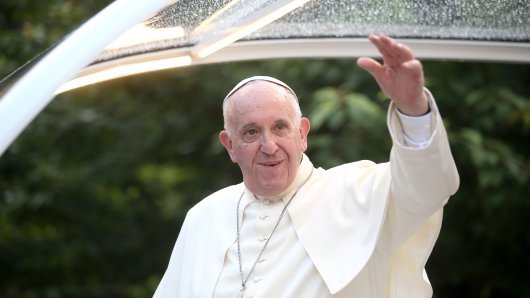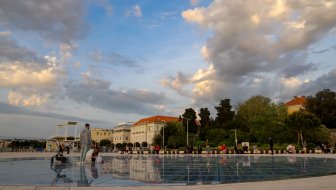The visiting Croatian Prime Minister, Zoran Milanovic, and his host, Serbian Prime Minister, Ivica Dacic, held their first working meeting in Belgrade on Wednesday to discuss outstanding issues in their bilateral relations including refugee returns, tenancy rights, the prosecution of war crimes, the border demarcation and the genocide lawsuits the two countries filed against each other before the International Court of Justice as well as economic cooperation and European integration processes.
"I have come to Belgrade to see whether we can make things better," Croatia's Milanovic told the joint news conference after their talks.
In the past years both countries have undergone difficult periods, and it is on the two government to "do reasonably what we have to", he added.
He said that, perhaps, the meeting might have taken place before, but it has occurred now when tensions have cooled down.
Dacic said that Croatia-Serbia relations were crucial for the region and it was important that the two government were cooperating.
"We have discussed important topics awaiting the two countries and our relations should be developed towards normalisation," Dacic said.
He said they had not avoided the topics from the recent past but "we must cooperate and develop relations in all segments as we are next-door neighbours."
The two premiers were agreed that "those issues will not be solved by anybody instead of us, as this is our responsibility".
As for Serbia's European Union membership bid, Milanovic announced Croatia's fair treatment of that matter.
"We support Serbia's path towards the EU. It is in our interest," he underscored.
As for the two countries' genocide lawsuits before the ICJ, Dacic said that this issue could not have been avoided and added that "it is not good to wait for 2014 when the court has scheduled the main hearings".
"We have not considered details, we will seek solutions like partners," Milanovic added, commenting on that topic.
As for the war crimes prosecution, the Croatian premier said that it was shameful that war crimes had occurred after the liberation of his country.
"However, high-ranking military officers are behind bars over war crimes and this speaks enough of the Croatian judiciary," Milanovic said.
He recalled that in Knin many refugees had come back, and that, according to his explanation, that was proof that they felt safe.
As for economic cooperation, Milanovic called on Serbian companies to come to the Croatian market, where, he stressed, market rules were respected.
Serbia's premier denied media reports that their meeting had been scheduled at the insistence of the European Commission, and highlighted that this was his and Milanovic's joint initiative and that Brussels had itself been surprised .
Concluding the news conference, the two officials said their meeting was an important step towards thawing bilateral relations and conducting operational cooperation.
After that Milanovic headed to the Croatian embassy for talks with ethnic Croat representatives.
The Milanovic-Dacic meeting was covered by over 150 reporters from Serbian and Croatian media and 18 foreign correspondents.




































